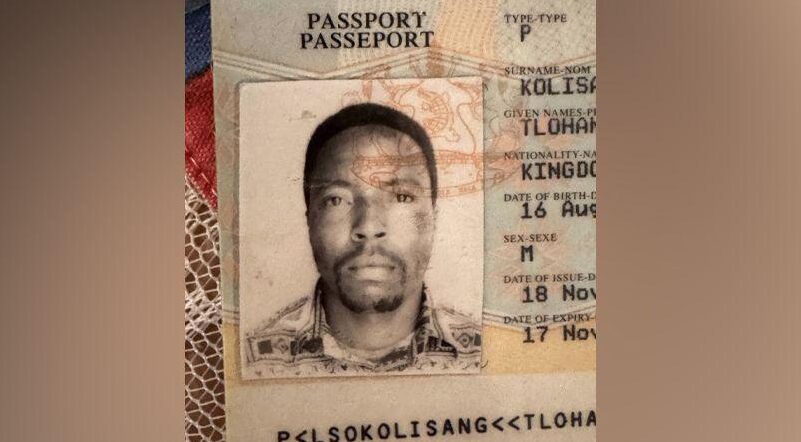BTN News: Lesotho, often known as the “kingdom in the sky” due to its towering mountains, is grappling with a sobering crisis—one that positions the small African nation as having the highest suicide rate in the world. With a staggering 87.5 suicides per 100,000 people, Lesotho’s mental health challenges are stark. This issue is deeply rooted in societal stigma, economic instability, and inadequate health services. In this article, we will explore the personal stories behind the statistics, the cultural challenges surrounding mental health, and the efforts being made to address this tragic epidemic.
A Personal Tragedy: The Story of Tlohang
Matlohang Moloi, a 79-year-old mother of ten, lives in the mountainous regions of Lesotho. Her firstborn son, Tlohang, took his own life at 38, becoming part of the country’s harrowing suicide statistics. Tlohang had shared his mental health struggles with his mother, but like many in Lesotho, he feared judgment if he spoke openly to others. “He told me, ‘Mother, one day you’ll hear I’ve taken my own life,’” Moloi recalls. His death left a profound void, one that echoes the silent suffering of many in Lesotho.
Lesotho’s Alarming Suicide Rate: A Global Outlier
Lesotho’s suicide rate stands at 87.5 per 100,000 people, nearly ten times the global average. The nation far surpasses the second-highest country, Guyana, whose rate is just over 40 per 100,000. Behind these figures lie complex social and economic challenges, including unemployment, widespread violence, and societal stigma around mental health. For many, seeking help feels impossible due to fear of being perceived as weak.
The Stigma Around Mental Health in Lesotho
One of the greatest barriers to addressing the mental health crisis in Lesotho is the cultural stigma. In a society where resilience is prized, discussing emotional or psychological struggles is often seen as a sign of weakness. As Patience, a 24-year-old survivor who attended a group therapy session in Hlotse, shared, “People think it’s against our spirituality and our cultural principles to speak openly about mental health.” This silence often leads to tragic outcomes, as those suffering feel they have no outlet for their pain.
Group Therapy as a Lifeline for Lesotho’s Youth
In response to the crisis, organizations like HelpLesotho are stepping in, offering therapy and mental health support to those in need. Lineo Raphoka, a social worker, facilitates regular group therapy sessions aimed at helping young women navigate their mental health challenges. During these sessions, participants like Ntsoaki, 35, share deeply personal stories of trauma, including sexual violence. “I thought suicide was the only solution,” she confesses. The therapy sessions provide a rare, safe space for women to open up about their struggles and find solace in shared experiences.
The Hidden Triggers: Unemployment, Violence, and Substance Abuse
Several factors contribute to Lesotho’s high suicide rate. According to a 2022 World Population Review report, 86% of women in Lesotho have experienced some form of gender-based violence. Coupled with high unemployment rates—two out of five young people lack jobs or access to education—the sense of hopelessness is overwhelming. Substance abuse, including alcohol and drug use, is also a significant factor, often exacerbating mental health struggles. “People in Lesotho don’t receive enough support from their families or communities,” Raphoka explains, highlighting the deep-rooted isolation many feel.
The Struggle for Adequate Mental Health Services
Lesotho’s public health system is ill-equipped to handle the mental health crisis. The country’s only psychiatric unit hasn’t had a permanent psychiatrist since 2017, and it has faced accusations of abuse and poor conditions. In a country where mental health resources are scarce, seeking professional help can feel like an insurmountable challenge. However, recent efforts by the government, including a draft policy on mental health, suggest that change could be on the horizon.
Government Efforts: Learning from the HIV/AIDS Battle
Lesotho’s government is taking cues from its successful battle against HIV/AIDS. In 2016, the country was the first in the world to adopt a “test and treat” approach, helping to reduce HIV infection rates significantly. According to Mokhothu Makhalanyane, a member of parliament and head of a health committee, a similar open-dialogue approach is being promoted to tackle mental health issues. “We’ve learned that speaking openly and avoiding blame can lead to real change,” he notes.
A Call for Change: Breaking the Silence on Mental Health
Despite the grim statistics, there is hope for the future. Lesotho is beginning to acknowledge the importance of mental health awareness, especially among its youth. NGOs and community leaders are working to break the cycle of stigma and silence, emphasizing that suicide is never the solution. As Moloi, who lost her son to suicide, puts it: “We need to talk to those around us, so they can help.”
Conclusion: The Path Forward for Lesotho
Lesotho’s suicide crisis demands urgent attention, but it’s clear that significant strides are being made to address the root causes of the epidemic. Through increased mental health awareness, accessible support systems, and continued government action, there is hope that the nation can reverse this heartbreaking trend. But it all begins with one essential action—starting the conversation about mental health and making it okay to ask for help.


